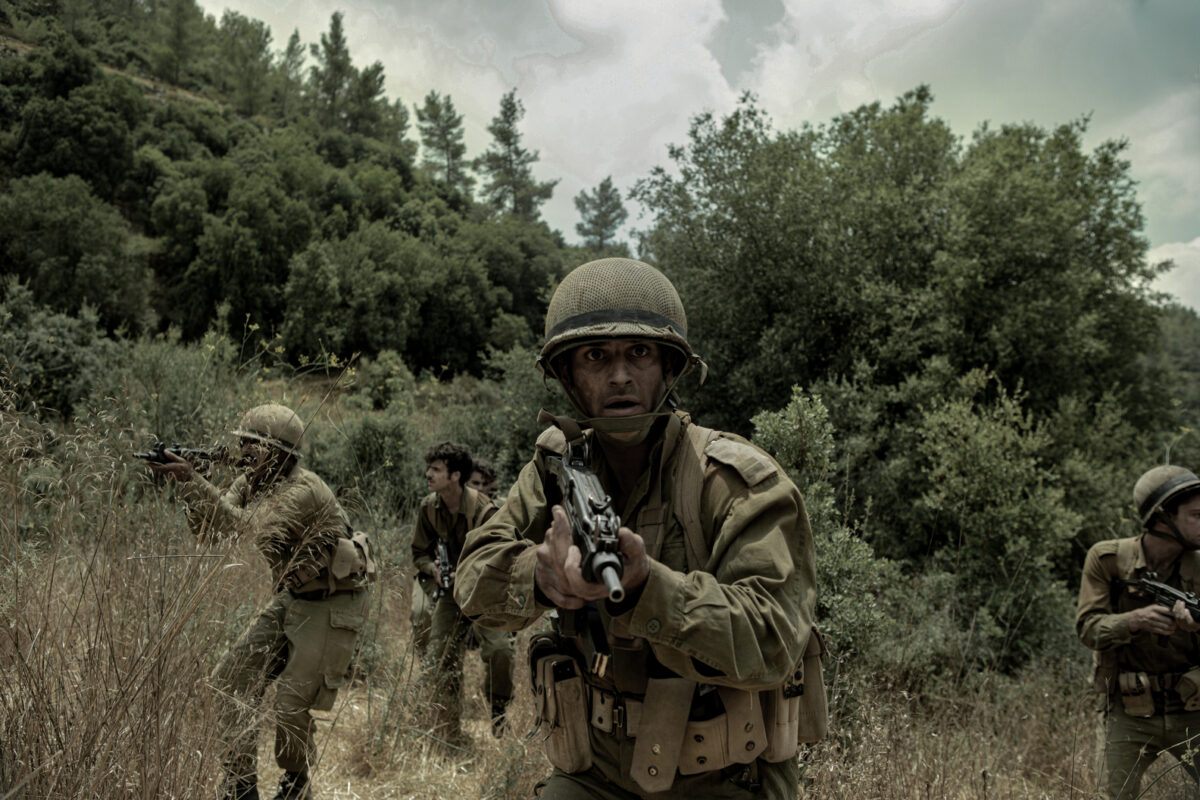The Yom Kippur War, which unfolded over a period of three weeks starting on October 6, 1973, traumatized Israel. During the course of the hostilities, some 2,600 Israeli soldiers were killed and 11,000 were wounded, a horrendous casualty toll for a country of Israel’s size.
Israel had grown cocky since its dazzling victory in the 1967 Six Day War. Israeli leaders ranging from Prime Minister Golda Meir to Defence Minister Moshe Dayan minimized the possibility of imminent offensives by Syria and Egypt to recapture what they had respectively lost — the Golan Heights and the Sinai Peninsula.
Valley of Tears, a terrific HBO Max miniseries, focuses on the first few days of the war on the Golan, which was annexed by Israel in 1981, recognized by the United States as sovereign Israeli territory in 2019, and deemed by U.S. Secretary of State Mike Pompeo as “part of Israel” while on a tour of the Golan on November 19.
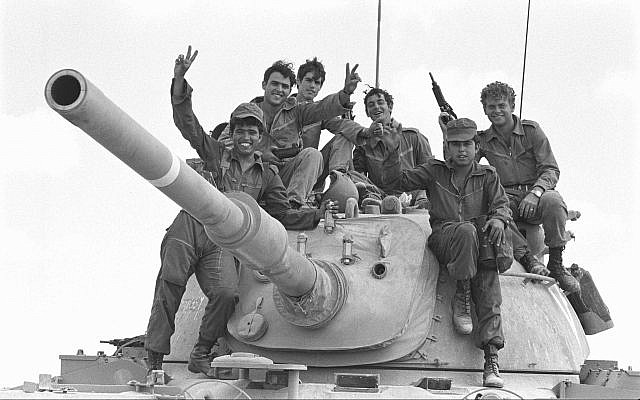
Directed by Yaron Zilberman and cowritten by Zilberman in collaboration with Ron Leshem, Amit Cohen and Daniel Amsel, Valley of Tears is composed of 10 episodes of about 42 minutes each. Judging by the first six segments, it’s an uncommonly powerful and riveting series, leaving a viewer invariably transfixed.
The first few minutes, an amalgam of archival footage of pre-war Israel, where I lived for two years beginning in 1971, conveys a mood of national well-being and smugness.
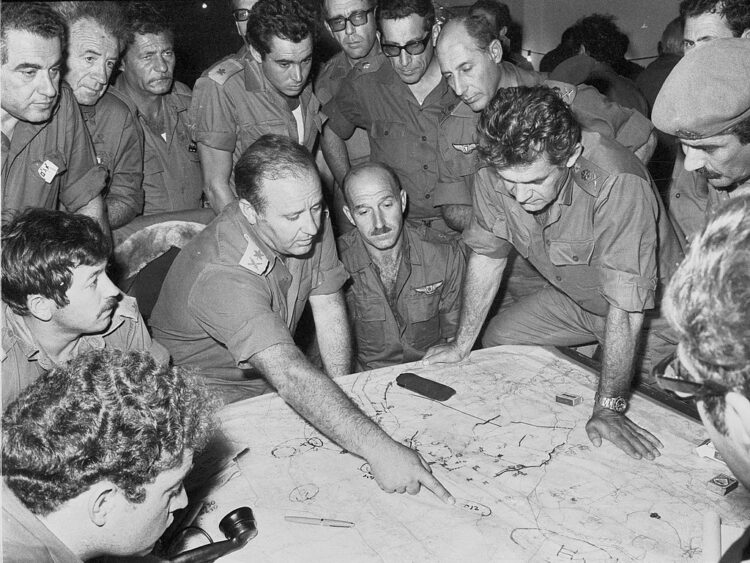
Israel marks its 25th birthday in martial fashion with a flypast of jets and a military parade in Jerusalem. The chief of staff of the Israeli armed forces, General David Elazar, assures the nation that the country is safe and secure and can defend itself. Prosperity and optimism abound.
In retrospect, Israel’s over-confidence lulled it into a dangerous sense of complacency. Far too many Israelis assumed that Israel was an invincible power, and that its Arab foes were hopelessly incompetent.
This atmosphere of omnipotence gradually fades away in the first scenes of Valley of Tears, a vivid blood-and-guts drama told from the perspective of Israeli soldiers who bore the brunt of Syria’s audacious attack. We do not hear from the generals who plotted tactics and strategy.
The soldiers hail from every corner and stratum of Israeli society: Ashkenazic and Sephardic Jews, city slickers and kibbutzniks, observant and secular Israelis, and men and women, representing the diverse cultural mosaic of a country formed by waves of immigration.
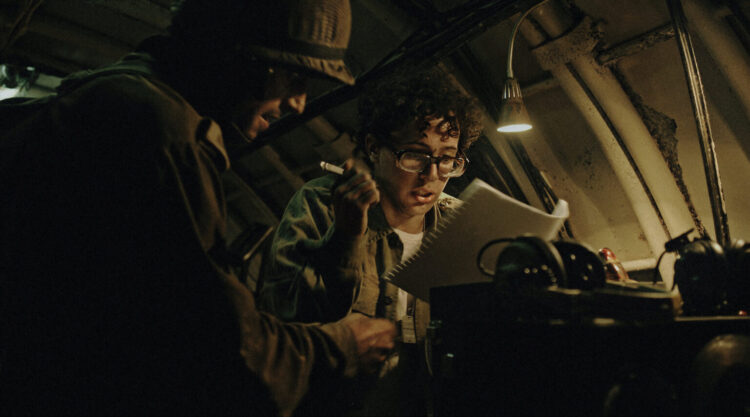
The camera pans on the darkened interior of a fortified bunker atop Mount Hermon known as Sicily. Avinoam (Shahar Taboch), a young, excitable and very knowledgable intelligence operative, is tapping into Syrian radio traffic. What he hears is alarming. Russia, Syria’s ally, is withdrawing its diplomatic staff from Damascus, a signal that a war is brewing. Yoav (Aviv Alush), the commanding officer, scoffs at his fears.
The scene shifts to a poor neighborhood in western Jerusalem. Malakhi (Maor Schwizer), an Israeli of Moroccan descent, has been arrested while leading a Black Panther demonstration protesting discrimination against Sephardic Jews. This theme continually crops up in Valley of Tears.
Marco (Ofer Hayoun), Malakhi’s friend, shares his grievances and does not want to report for reserve army service. Alush (Imri Biton), a person of moderation who knows them both, convinces Marco to fulfill his duty as a reservist.
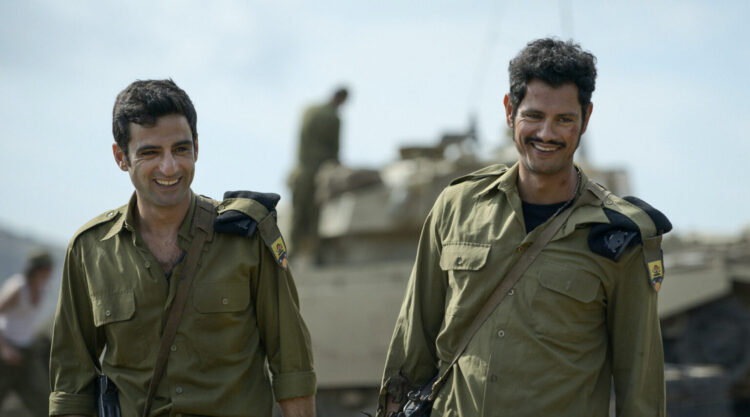
Back at Sicily, Avinoam grows increasingly frantic after hearing that Syrian farmers have been instructed to keep away from their fields close to the Golan. War is imminent, he warns. Yoav remains skeptical.
At an army base in the southern sector of the Golan, normalcy reigns as an officer talks about taking a vacation in Portugal.
With tension building in Sicily, Avinoam issues yet another dire warning. Sicily will be assaulted by helicopter-borne Syrian commandos, and the Golan in its entirety will be attacked by a force of 270,000 Syrian troops and 1,600 tanks. As he points out, Israel has only 177 tanks at its disposal on the Golan. Avinoam’s warnings annoy Yoav, who confidently assumes that Syria is not yet ready or capable of launching an offensive of this magnitude.
Minutes later, Sicily is pounded by Syrian artillery shells. Shortly afterward, the other Israeli base on the Golan is bombed by two Syrian jets. In short order, Israeli tankists destroy a column of advancing Syrian tanks. The Israelis soon run out of ammunition.
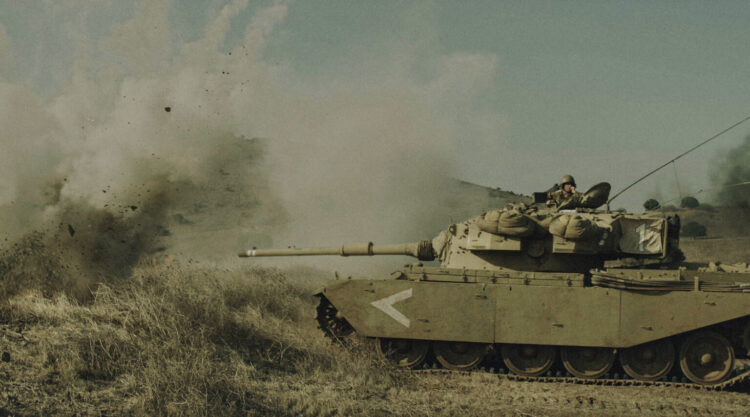
With the war having begun, a newsreel of Golda Meir flashes across the screen. Incredulously enough, she claims she was not surprised by the outbreak of war. In a brief clip, Moshe Dayan admits that, while Israel has suffered casualties, the situation is “relatively satisfactory.” Dayan’s assessment falls short of the truth.
At the besieged Sicily outpost, Syrian troops have penetrated the bunker. Avinoam is deeply concerned that, if captured, he will be tortured to reveal highly-classified state secrets.
Melakhi escapes from prison, bound for the Golan front. Meni (Lior Ashkenazi), a middle-aged writer and socialist looking for his estranged son, a soldier, stops his car to give Melakhi a lift. The pair engage in a lively conversation. One of the topics is Moroccan fish stew.
The brutality of the war is illustrated in a few graphic scenes. An Israeli tank commander is killed by snipers. His furious second-in-command, Caspi (Omer Pearlman), drives his lumbering tank over Syrian soldiers concealed in bushes. The Syrians are usually seen from a distance in Valley of Tears. And in a friendly fire mishap, Caspi accidentally kills several Israeli troops spilling out of an armored personnel carrier. Nearby, a shell-shocked, bloodied Israeli soldier slumps against the tire of a military vehicle.

As the Syrians seize Sicily, the Israeli survivors flee to safety through a secret exit. Through a crack in a wall, Avinoam fleetingly watches Syrian troops shoot Israeli prisoners.
En route to the Golan, Meni picks up a second hitchhiker. Dafna (Joy Rieger) is an army officer, and her boyfriend is Yoav. Along with other females, she was ordered to leave the base where they’re heading. She is determined to return.
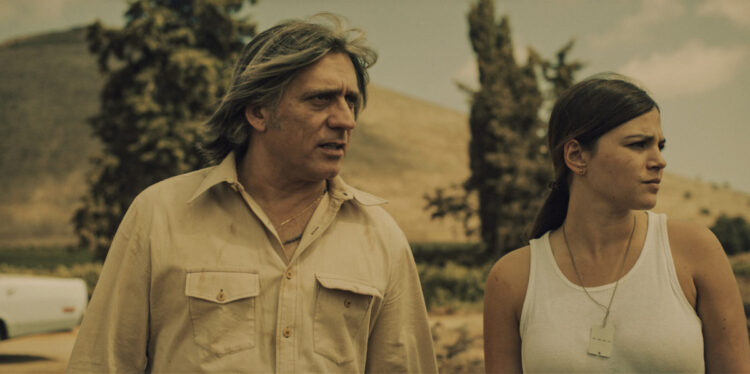
They reach the Israeli command center on the Golan by crashing through a checkpoint. Before reaching their destination, they stumble upon the wrecks of an Israeli tank and an armored personnel carrier and the corpses of their occupants. They’re shocked by the horrific sights. Meni panics when he momentarily concludes that one of the deceased soldiers is his son.
A mutiny erupts when Marco disobeys Caspi’s order to remain at the Syrian-surrounded base. Their standoff is temporarily interrupted by a menacing Syrian plane flying toward them.
On day two of the war, the soldiers who fled Sicily are ambushed in a field. A surreal scene ensues as Avinoam and a Syrian soldier spot each other, engage in a brief conversation in Arabic, and exchange “gifts.”
Caspi and his men rescue a downed Israeli pilot from the clutches of the Syrians. The wounded pilot says the war is going badly. The Syrian army is approaching a strategic road leading to the Sea of Galilee, he says.
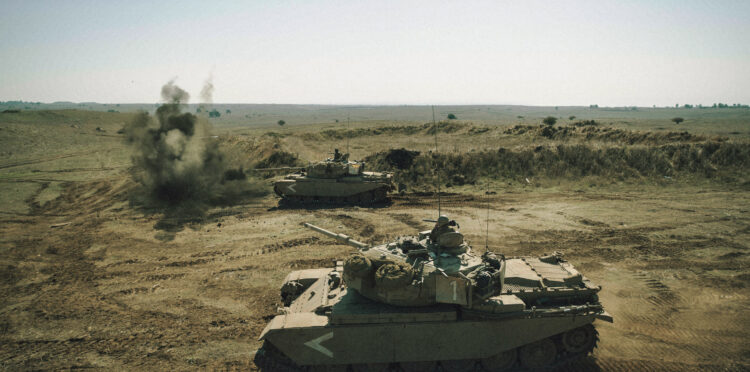
Yoav and Avinoam learn to appreciate each other as they walk toward the Druze village of Majdal Shams. They bond as they negotiate a treacherous Israeli minefield.
Caspi, fearing a Syrian advance on the hill they currently hold, orders a bombardment of it.
Meni, having heard his son is alive, places a phone call to Moshe Dayan’s office in the hope of evacuating him from the war zone. Unable to reach Dayan, Meni curses him.
These are the stories of ordinary Israelis coping with adversity and death in a war Israel neither expected so soon nor satisfactorily prepared for. The actors turn in superb performances, and the production values are of a high caliber.
Valley of Tears skillfully recreates a time and a place, both of which are indelibly seared into the consciousness of a generation of Israelis who responded to the call of duty during a national crisis.
